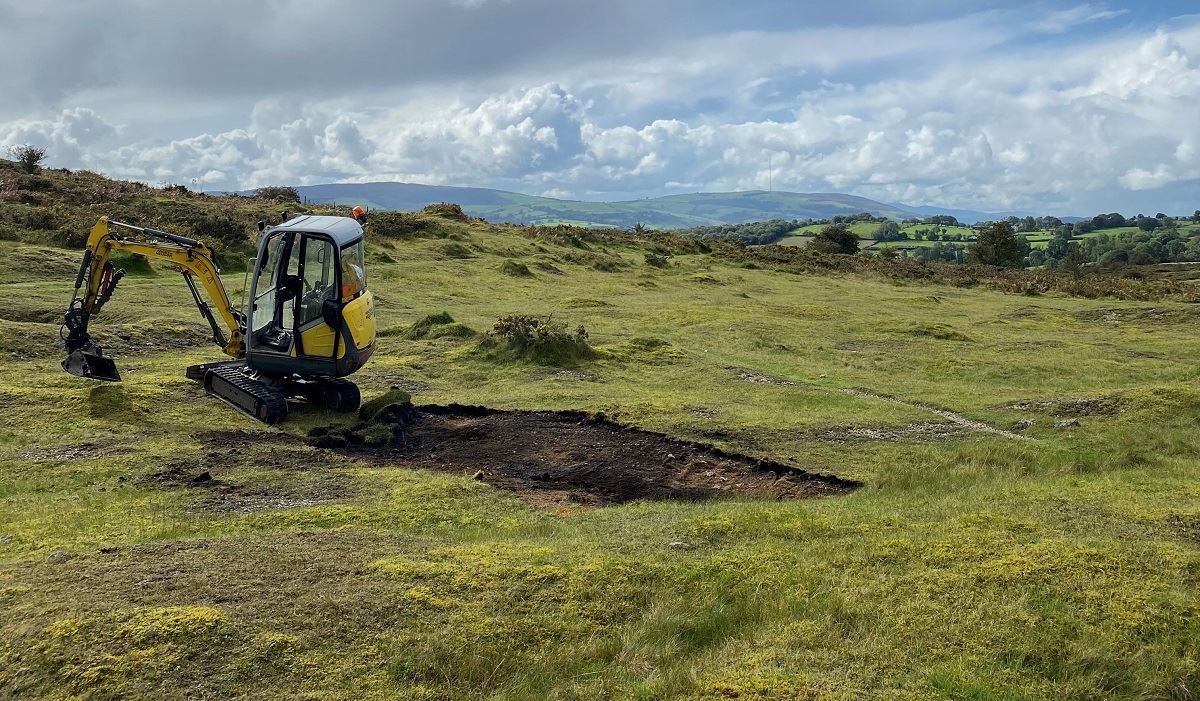Conservation work commences on rare habitat created by old mine spoil

A new round of conservation work is being carried out on a rare habitat on Halkyn Mountain in Flintshire, which was created by mining taking place in the area.
Natural Resources Wales (NRW) has started work to scrape surface vegetation that will help to expose the underlying soil with the aim of re-establishing the rare Calaminarian habitat – heavy metal tolerant grassland.
This habitat is specifically associated with old mine spoil in areas formerly used for the mining of heavy metals such as lead and zinc and supports rare plant species such as spring sandwort (Sabulina verna) as well as heavy metal tolerant mosses and lichens.
Contractors will scrape the surface vegetation to expose crucial bare ground habitat and increase the likelihood of natural reseeding from nearby Calaminarian habitat.
There will be six scrape areas in total; with five scraping the surfaces whilst one area will see a technique that inverts the surface on itself in the hope of bringing the mineral layers to the top.
Annual monitoring will then take place to observe which species reappear within the scraped areas.
NRW officers will work closely with Halkyn Mountain Nature Conservation Group who operate locally and will help with monitoring on a frequent basis.
Pilot project
This will also act as a pilot project with the results helping to inform any future management of this rare habitat across Wales.
Halkyn Common & Holywell Grasslands Site of Special Scientific Interest (SSSI) and Halkyn Mountain Special Area of Conservation (SAC) supports the largest areas of heavy metal tolerant grassland in Wales – equating to 79% of the total amount of this type of Calaminarian grassland found in Wales.
Elizabeth Felton, NRW Environment Team Leader, said: “The work on Halkyn Mountain is very important as it stands to boost a large proportion of some of the only Calaminarian habitat found here in Wales.
“We hope our intervention is a timely one given this rare habitat on Halkyn Mountain is currently under threat from numerous forces, including under grazing that results in overgrown vegetation, and human-led activities such as illegal dirt biking.
“Due to the nature of scraping work, the ground might look damaged initially, and this could alarm some people. However, it’s worth emphasising that the true effect will take at least a year to come to fruition as we await to see which species recolonise the scraped areas.”
Support our Nation today
For the price of a cup of coffee a month you can help us create an independent, not-for-profit, national news service for the people of Wales, by the people of Wales.






